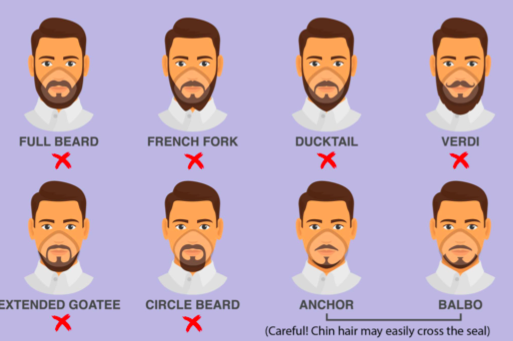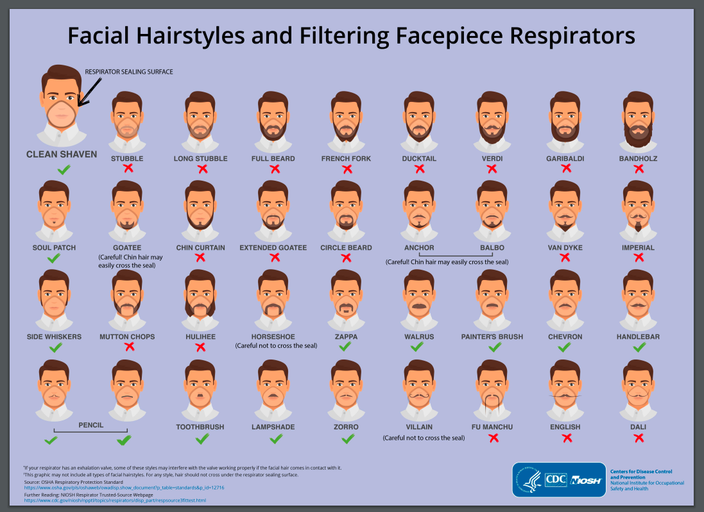
February 26, 2020
 Provided Image/U.S. Centers for Disease Control and Prevention
Provided Image/U.S. Centers for Disease Control and Prevention
Some people may need to shave their facial hair to ensure a respirator works properly. That includes men who wear the styles above. The form-fitting devices, which differ from flimsy surgical face masks, are designed to prevent the intake of airborne respiratory particles. The CDC's complete guide can be seen below.
As the coronavirus spreads, some men working in medical settings may be in need of a shave.
Various facial hair styles can render facepiece respirators ineffective, according to the U.S. Centers for Disease Control.
Full beards, goatees and mutton chops all can break the seal of the form-fitting devices, allowing respiratory particles to sneak through. So can old-school English mustaches and the bold fu manchu.
Men wishing to maintain some type of facial hair may have to settle for a look that's no longer in fashion. Soul patches and a variety of mustaches, like the handlebar and walrus, are acceptable – at least according to the CDC.
Men who wear facepiece respirators may need to alter their facial hair to ensure their device works properly. This graphic highlights the various acceptable options – as well as those to avoid.
Demand for facial masks and respirators has surged since the coronavirus outbreak began in China late last year. Fears have grown as the virus has spread elsewhere, infecting more than 80,000 people worldwide. At least 2,700 people have died.
Most Americans still have no reason to wear them, the CDC says.
Flimsy surgical masks do little to prevent a healthy person from becoming infected, health experts say. But they do prevent the spread of disease when worn by people with respiratory illnesses.
By contrast, respirators provide substantial benefits, filtering out both large and small airborne particles. But they're really only necessary for medical professionals.
The CDC does not recommend routine use of respirators outside of workplace settings. That's because respiratory viruses mostly spread via close contact – anything within six feet. That includes influenza, which currently poses a bigger threat to Americans than COVID-19.
Still, medical professionals who wear respirators may want to reconsider their look. The picture below highlights their options.
Follow John & PhillyVoice on Twitter: @WriterJohnKopp | @thePhillyVoice
Like us on Facebook: PhillyVoice
Add John's RSS feed to your feed reader
Have a news tip? Let us know.
 Provided image/U.S. Centers for Disease Control and Prevention
Provided image/U.S. Centers for Disease Control and Prevention